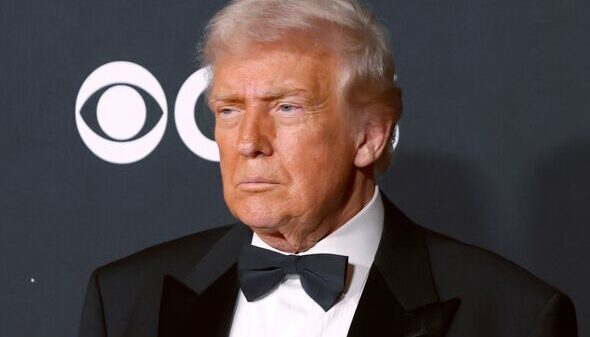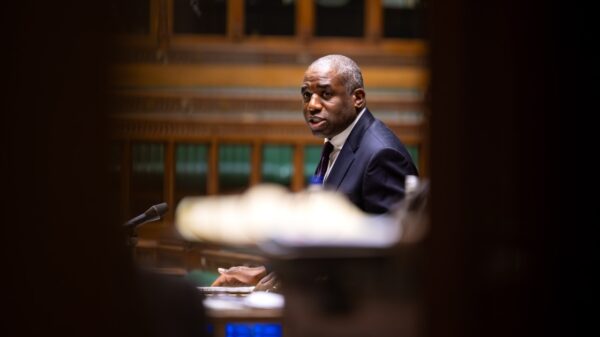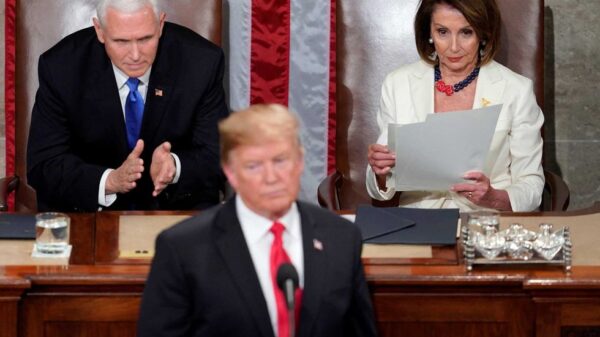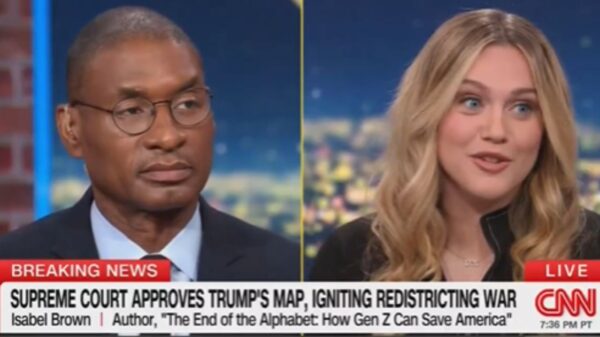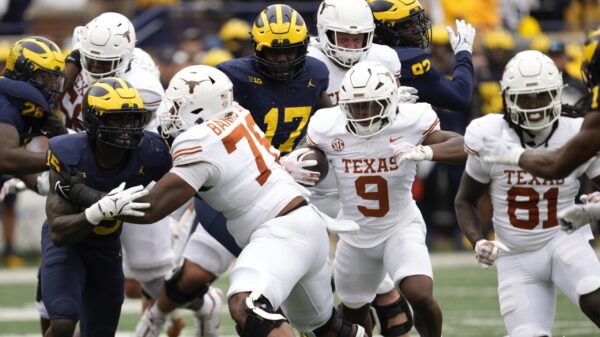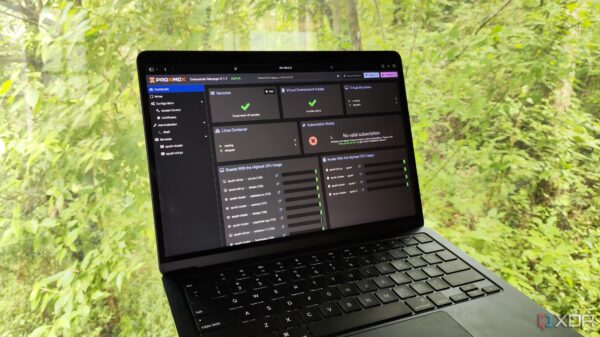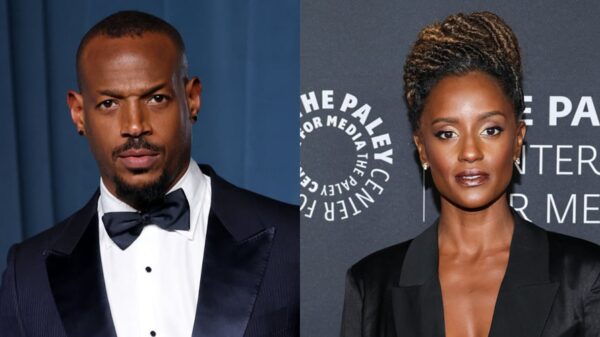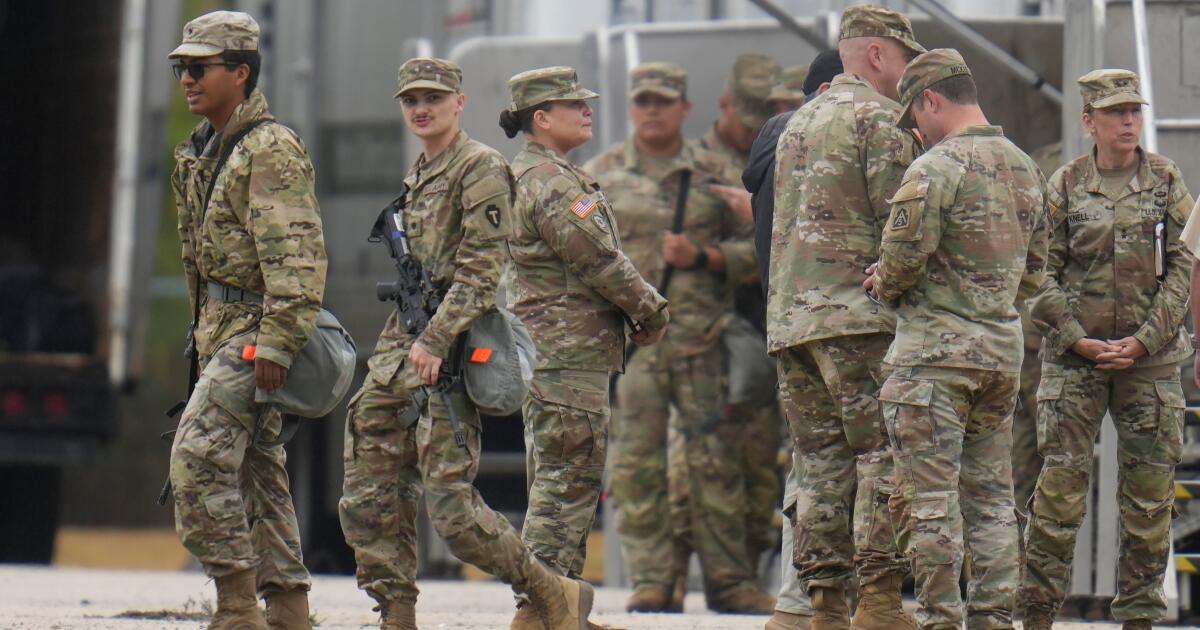UPDATE: The 9th Circuit Court is urgently re-evaluating a pivotal ruling that previously empowered President Trump to deploy federal troops to cities, including a controversial surge in Los Angeles. The three-judge panel convened in Pasadena on Wednesday, signaling a potential shift in the legal landscape governing military interventions amid civil unrest.
This rare meeting comes five months after the Trump administration’s deployment of federalized troops sparked outrage among state and local leaders. The panel’s reconsideration may redefine the president’s authority to utilize military force in urban areas across the United States, a topic that has ignited fierce debate in courts nationwide.
The legal foundation for these troop deployments hinges on an obscure subsection of U.S. law, which is being scrutinized in light of a recent ruling that granted Trump significant leeway in determining when protests escalate into rebellion. Judge Eric D. Miller questioned the validity of equating minor disturbances with rebellion, stating, “I guess the question is, why is a couple of hundred people engaging in disorderly conduct… comparable severity of a rebellion?”
This inquiry highlights a critical division within the judiciary, as some judges have challenged the expansive interpretation of presidential powers. The panel’s earlier ruling in June mandated a “great level of deference” to the president’s decisions, but Wednesday’s discussion could lead to a recalibration of that authority.
Legal experts have noted that the statute invoked by Trump remains vague and largely untested, with a historical precedent of only one usage in the past 122 years. During the hearing, California Solicitor General Samuel Harbourt emphasized the uncertainty surrounding the definition of “rebellion,” arguing that existing interpretations could unjustly encompass any form of protest.
The judges are also grappling with whether the factual basis for the president’s claims must be substantiated. In a recent case from Oregon, Judge Karin Immergut critiqued Trump’s assertions about a rebellion as “untethered to the facts.” However, a separate ruling by the 9th Circuit overruled her, indicating that the president retains discretion in interpreting the situation.
Judge Jennifer Sung hinted at a possible shift in perspective, suggesting that the court may not view the president’s discretion as absolute. She remarked, “I don’t see the court saying that the underlying decision of whether the factual basis exists is inherently discretionary,” aligning her views closer to judicial opinions from the 7th Circuit that have defined political opposition as separate from rebellion.
The implications of this review are vast. Even if the Supreme Court were to rule against the administration, Trump may still invoke the Insurrection Act to justify troop deployments. The administration has expressed its desire to broaden its military authority, claiming that there are no limits to where or how long troops can be stationed under presidential command.
During the hearing, the administration’s attorney confirmed that troop deployment decisions would be solely at the president’s discretion, regardless of changing conditions on the ground. This has raised alarms about the potential for indefinite military presence, reminiscent of historical precedents like the federalized militia during the Whiskey Rebellion of 1794.
As the 9th Circuit deliberates, the nation watches closely. The outcome of this case could have lasting repercussions on civil liberties and the role of federal forces in domestic unrest, making it a critical moment in the ongoing debate over presidential power and public safety.
The court’s decision is expected to be closely monitored in the coming weeks, with significant implications for both current and future administrations. The dialogue sparked by this case is far from over, and its ramifications will be felt across the country as the legal community and the public await a resolution.




